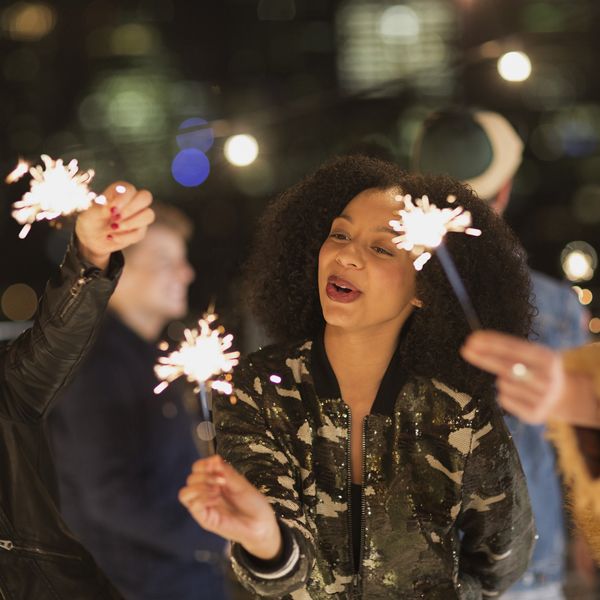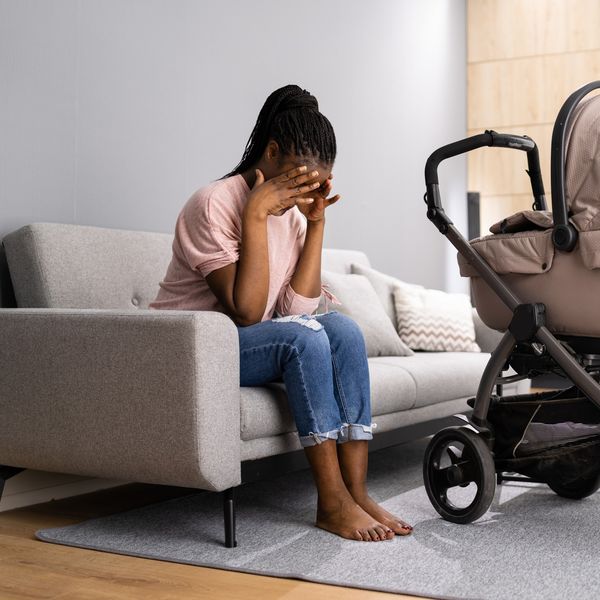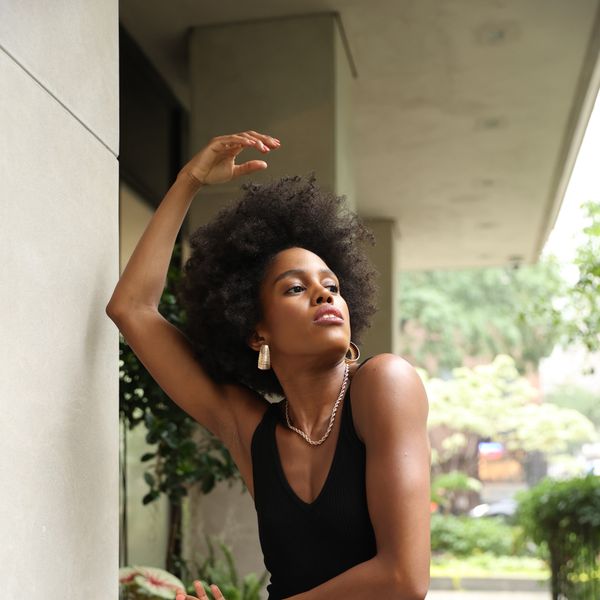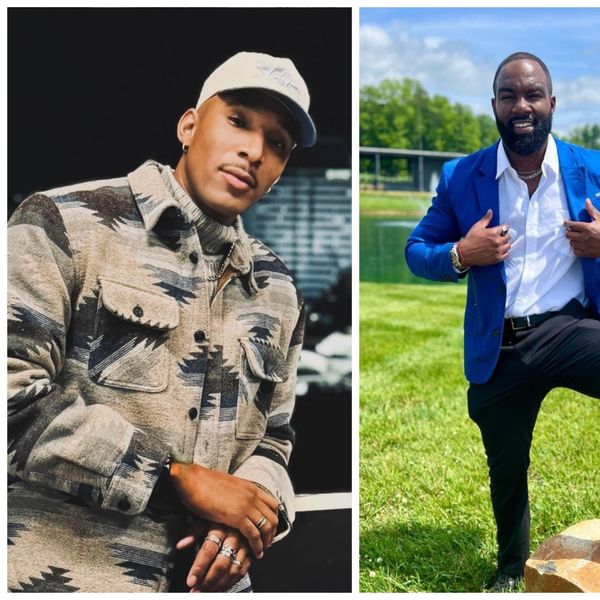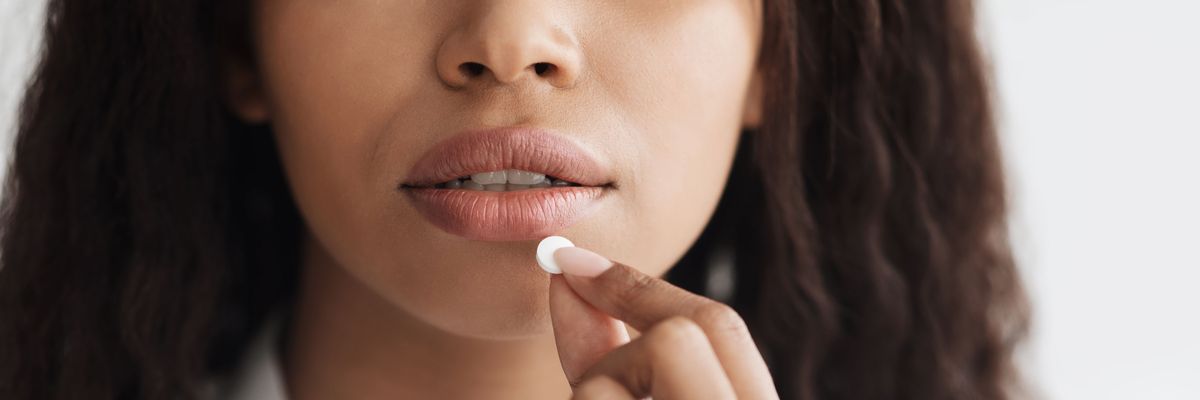
The Stonewall Uprising in Manhattan has been dubbed the catalyst for creating change for the LGBTQ+ community. Over 50 years ago, the queer community at Stonewall Inn decided they had enough of police harassment and they decided to fight back like never before. With bottles, coins, and stones, they literally fought for their civil and human rights — enough was enough. It wasn’t the first time this occurred but there was something different about this riot on June 28, 1969. From then on, the last Sunday in June was celebrated as “Gay Pride Day” and it became a month-long galvanization that we now know as Pride Month.
Pride Month is more than rainbow flags, discounts, and corporate sponsorships. It’s about honoring a community that deserves celebration because love is love. The Library of Congress says, “The purpose of the commemorative month is to recognize the impact that lesbian, gay, bisexual and transgender individuals have had on history locally, nationally, and internationally.” And for queer, Black folx it means truly acknowledging intersectionality. To honor some of those beautiful beings, we asked Black queer womxn what Pride means to them, how they show up as their full selves, and what we can do to better celebrate this community during June.
Pronouns: She, Her
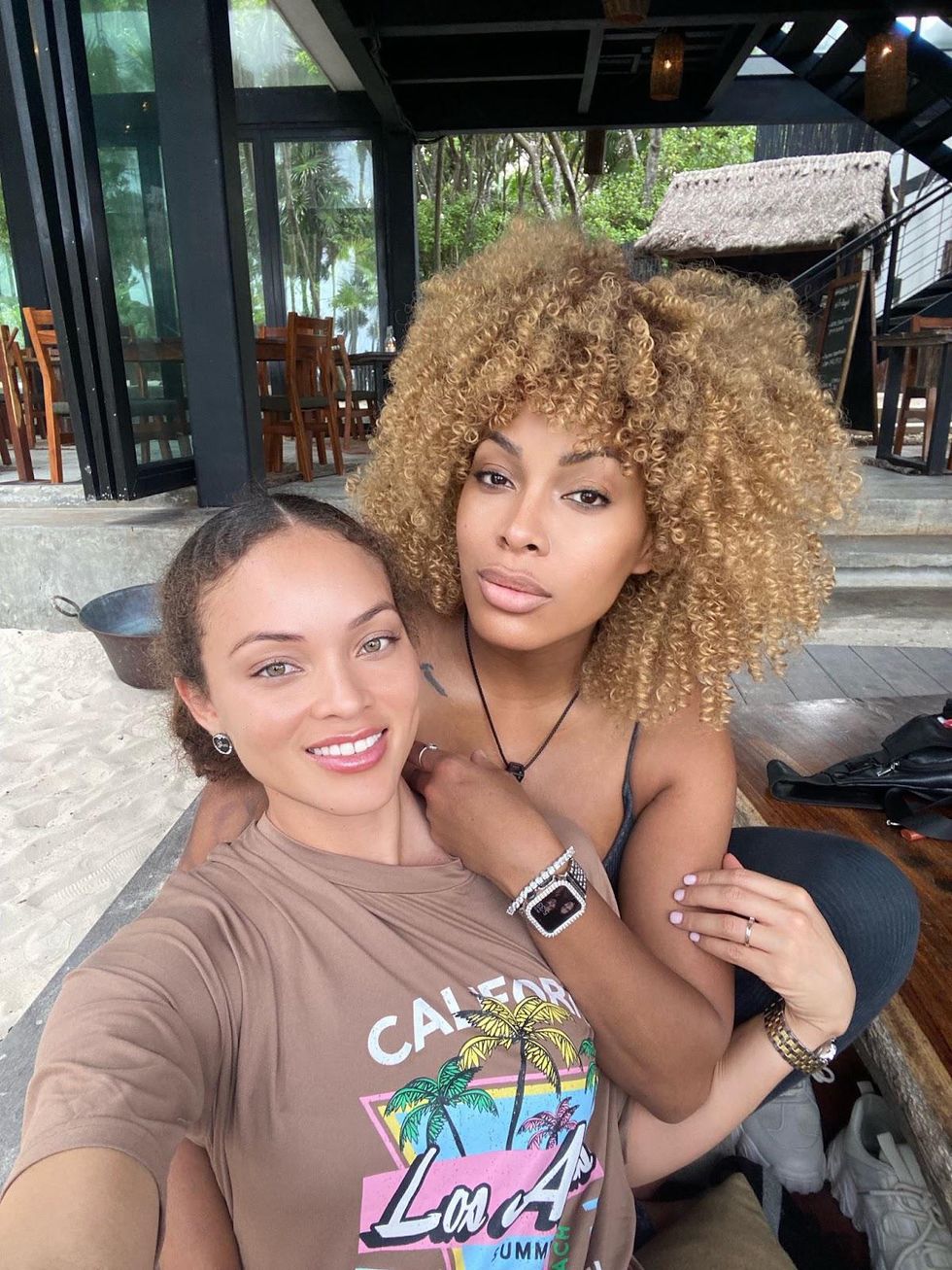
Bridgette Young and her wife Veronica Paige
Courtesy of Bridgette Young
What Pride Month means to her:
Pride Month means the celebration of everyone who is like me who embraces a different sexual orientation separate from traditional standards. It’s a time for me to reflect on the community that has fought for the opportunities we currently have--such as marriage and protection from discrimination, although we still have work to do. Consequently, Pride month is a time to cultivate processes and pathways to enable and maintain longevity and continuous progress in the Black queer community.
Finally, visibility and the opportunity to shine at our full potential in personal and professional settings are key elements to success; because when we are loved, accepted, and respected— then we can truly be our authentic selves and rise to excellence.
What she loves most about being Black and queer:
Being Black and queer is truly a beautiful thing. Even though I was born and raised in Jamaica in a multicultural home, I was driven by the strength I saw in my mother and sisters. This motivated me to be a very strong and independent individual who thrives for success in all my endeavors and to be proud of who I am even with my differences.
I feel a sense of power and boldness embodied in immense creativity within our community. The Miami Black Pride Community is close-knit and supportive of the community’s accomplishments. This is something to be delighted and grateful for because support sometimes can be staggering.
How she celebrates Pride Month and makes it her own:
I make Pride Month my own by being more impactful with my visibility. I do this by participating in Pride Month activities at work, attending Pride Month events with my wife Veronica Paige, and living my truth by being my unapologetic authentic self. Last month, on May 24, 2022, Veronica and I got married. We have numerous publications covering our journey to marriage both locally in the U.S. and internationally.
As a multi-racial lesbian woman in America with Jamaican heritage, the intent is to create a platform through exposure and advocate for those who may be considering a similar journey as well as educate the audience who might lack understanding.
What she would like to see change about the celebration of Pride:
Even though we have celebrated many victories in the U.S., there is still lots of work to be done. There are still countless people within our community that face discrimination daily. Threats to queer life don’t have to be deadly, even though many times they are. They also include denied access to employment and healthcare, and forbidden acknowledgment and support to youth in schools. Minority groups are most affected, and frequently they are shunned by their families and end up homeless. The rejection within our community often leads to mental issues causing drug use and depression which is a cause of concern that need to be assessed and addressed.
Also, corporate America should do a better job at standing with the LGBTQ+ community-- not only during Pride Month but all 12 months of the year as active allies. Corporate companies are visible during Pride Month with market-focused ad campaigns and merchandising for profit. However, impactful support is needed in advocating for the queer community to protect our rights against politicians and states who are implementing laws to silence our community in schools and at work i.e. “Don’t Say Gay." Despite the current political climate, I have never seen a more enlightened and nurturing queer community. We are finally lifting as we carry, and I am honored to be a part of this community and to continue the work.
"Threats to queer life don’t have to be deadly, even though many times they are. Minority groups are most affected, and frequently they are shunned by their families and end up homeless. The rejection within our community often leads to mental issues causing drug use and depression which is a cause of concern that need to be assessed and addressed."
Poet, Singer, Songwriter
Pronouns: All
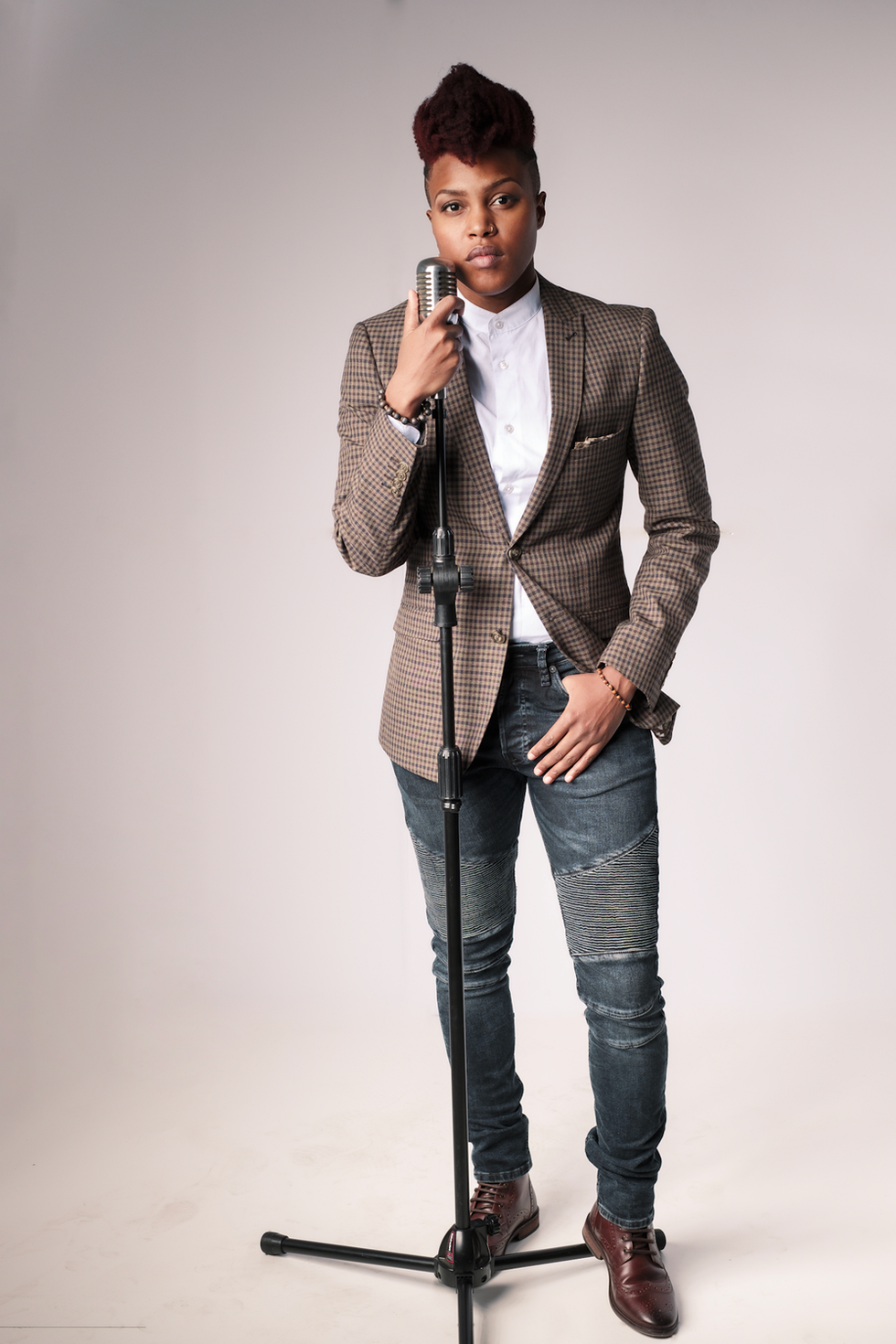
Courtesy of Kerrie Joy
What Pride Month means to them:
It means a month of reflection, remembrance, and mourning. It means rainbows, colorful store aisles, and bold expression. It means facing fears, counting blessings, and kicking down doors. It means coming outs, second chances, and firmer boundaries. I mean, these things happen daily but I do believe we become more hyper-aware and hyper-focused on them during this month. More than anything, this month, I do challenge myself a bit more to walk with my head higher, to be less apologetic, and to truly exist in Pride.
What they love most about being Black and queer:
The love, joy, and comfort that comes with being myself, unapologetically.
How they celebrate and make it their own:
I think it’s vital to celebrate all of the time. I stay in my pockets of dope, Black queer womxn where we see each other and validate each other because the world around us tends to find ways to erase us. So I surround myself with dope Black womxn and we celebrate every moment we can.
What they would like to see change about the celebration of Pride:
In general, I’d love to see the stories of Black, brown, and Indigenous people being centered in national Pride events, conversations, legislation, etc. The reality of intersectionality and compounded marginalization requires that we focus on those who have been closest to oppression. We don’t tend to practice that on a national level with Pride. We don’t really see it locally either. However, I do see certain people trying. I was happy to see when Pride in Denver moved its weekend because of Juneteenth.
But then again, that should already be one of the most celebrated moments of liberation in this country. Either way, we definitely have work to do if our Black queer and trans women are still one of the most targeted populations with personal and systemic violence. Until their worlds are safe, it’s impossible that any of ours truly could be. You should go out of your way to give love, reparations, and/or honor to a Black girl today. It’ll bless you.
"The reality of intersectionality and compounded marginalization requires that we focus on those who have been closest to oppression. We don’t tend to practice that on a national level with Pride. Either way, we definitely have work to do if our Black queer and trans women are still one of the most targeted populations with personal and systemic violence. Until their worlds are safe, it’s impossible that any of ours truly could be."
Content Creator for the LGBTQ and Body Positivity communities
Pronouns: She, Her
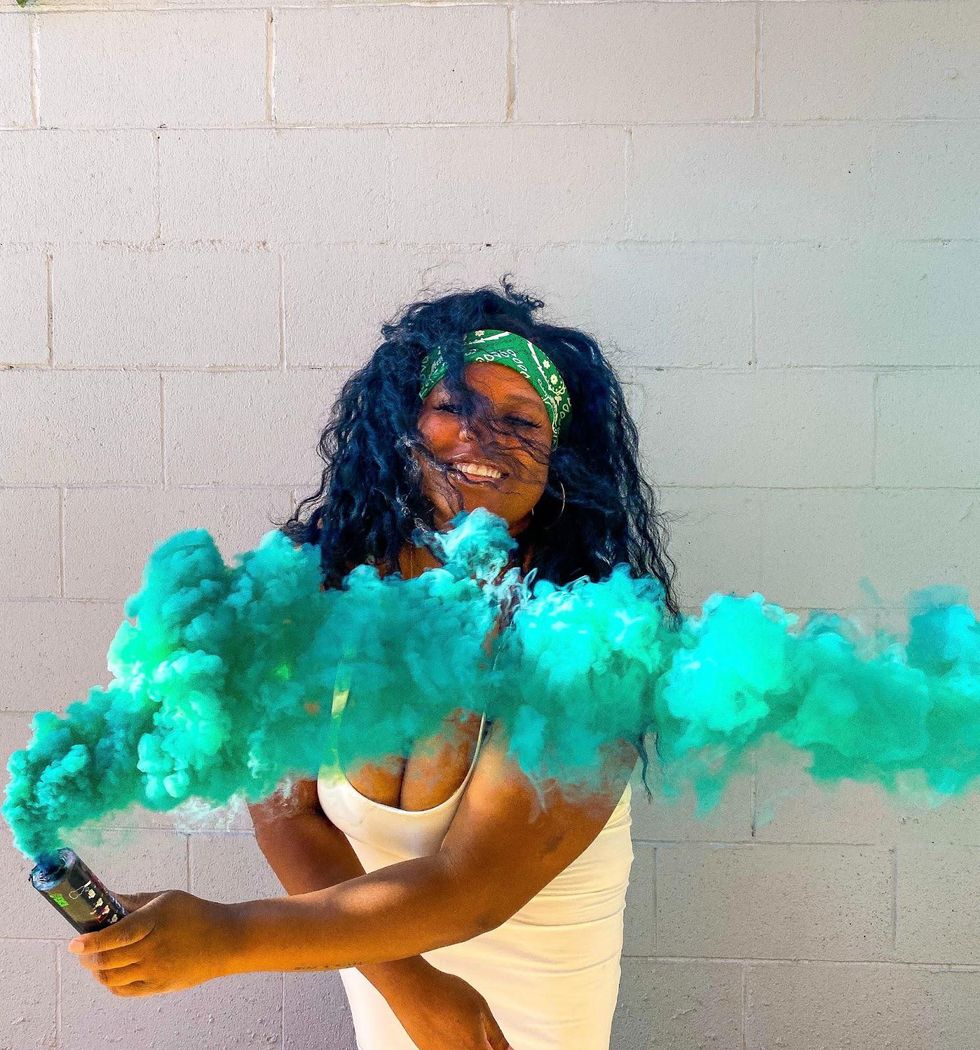
Courtesy of Kyanna Alexandra
What Pride Month means to her:
When I think of what Pride Month means to me, I think of freedom and the power it brings to myself and everyone else who is celebrating this Pride season, whether they're out or not. Pride to me means that I can present myself in any way that I see fit that is true to me, as well as a reminder that we as LGBTQ people are still fighting for basic human rights. We're constantly in a battle and at war with people who don't understand how queer people live, nor do they wish to accept us. So Pride Month as a whole is a constant reminder that we still have work to do, no matter how much progress has been made. I also feel a sense of entitlement, and I'm not sure where that comes from, but I know when June first rolls around, I know it's all about me and the LGBTQ community, and how we as queer people make this world a happier place simply by being ourselves. Also, we party the best.
What she loves most about being Black and queer:
What I love most about being Black and queer is the uniqueness that it brings and the diversity that comes with it. While I know that both are celebrated and hated in some spaces, it doesn't stop me from feeling powerful and in charge of myself. There's something rich and undyingly beautiful about being Black and a woman. My Blackness is powerful, it commands rooms and it puts fear in people who see Black as a threat. In the same breath, my queerness is fun and exciting. It's the extra cherry on top when people see my Black ass walk into a room, and to announce that I'm queer is exhilarating because I know it's another layer for people to understand and educate themselves about me and how I represent myself within both identities.
How she celebrates Pride Month and makes it her own:
When I celebrate Pride, I celebrate the entire month of June so hard and so fiercely that come July 1, I'm tired but in a good way. Pride Month is a great time for me to connect with other LGBTQ content creators, a way to attend parties that cater to the LGBTQ community and of course, attend the multiple parades across the state. But aside from attending parties and parades, I also like to attend events where queer people are the focus, such as panels, mixers, and networking functions. Being involved in the community and taking advantage of the hundreds of get-togethers that one can attend or get invited to is a way where I make Pride my own.
What she would like to see change about the celebration of Pride:
There are a couple of things that I would like to see changed when it comes to the celebration of Pride. One of the biggest things that annoy me, and probably a lot of other people, is the rainbow capitalism that happens rapidly throughout the last week of May. Companies rush to push out their Pride merchandise, of course, in hopes that LGBTQ consumers purchase them, but I can't help to believe that if a company isn't genuine about celebrating LGBTQ people 365 days out of the year, then I find the acts performative and leech-worthy to make a quick buck from the community.
The second thing that I feel needs to change is a bit more specific and comes within the content creation. Companies want to show their inclusivity by hiring us to promote their brand/business during Pride Month, but want to pay us in product and not for our time in creating the piece of content with a list of deliverables. Furthermore, companies undercut us as LGBTQ creators by not paying us our worth. It's things like these that create a gap between members of the LGBTQ community and those that are not. We are human, and we deserve to be paid as such and not any lesser due to the category we fall into.
We all get to celebrate Pride in whatever way we deem fit. No matter what happens, no matter what we go through in life, there is always a light at the end of the tunnel. I thought I would never get the chance to see the day when I go to Pride events and parties and meet people within the community because I didn't know where to start. I am the first and only person in my family to be a member of the LGBTQ community, and after what I have been through with my mother disowning me, it's days like these I thought I would never see, and I appreciate them the most.
"There's something rich and undyingly beautiful about being Black and a woman. My Blackness is powerful, it commands rooms and it puts fear in people who see Black as a threat. In the same breath, my queerness is fun and exciting. It's the extra cherry on top when people see my Black ass walk into a room, and to announce that I'm queer is exhilarating."
Pronouns: She, Her
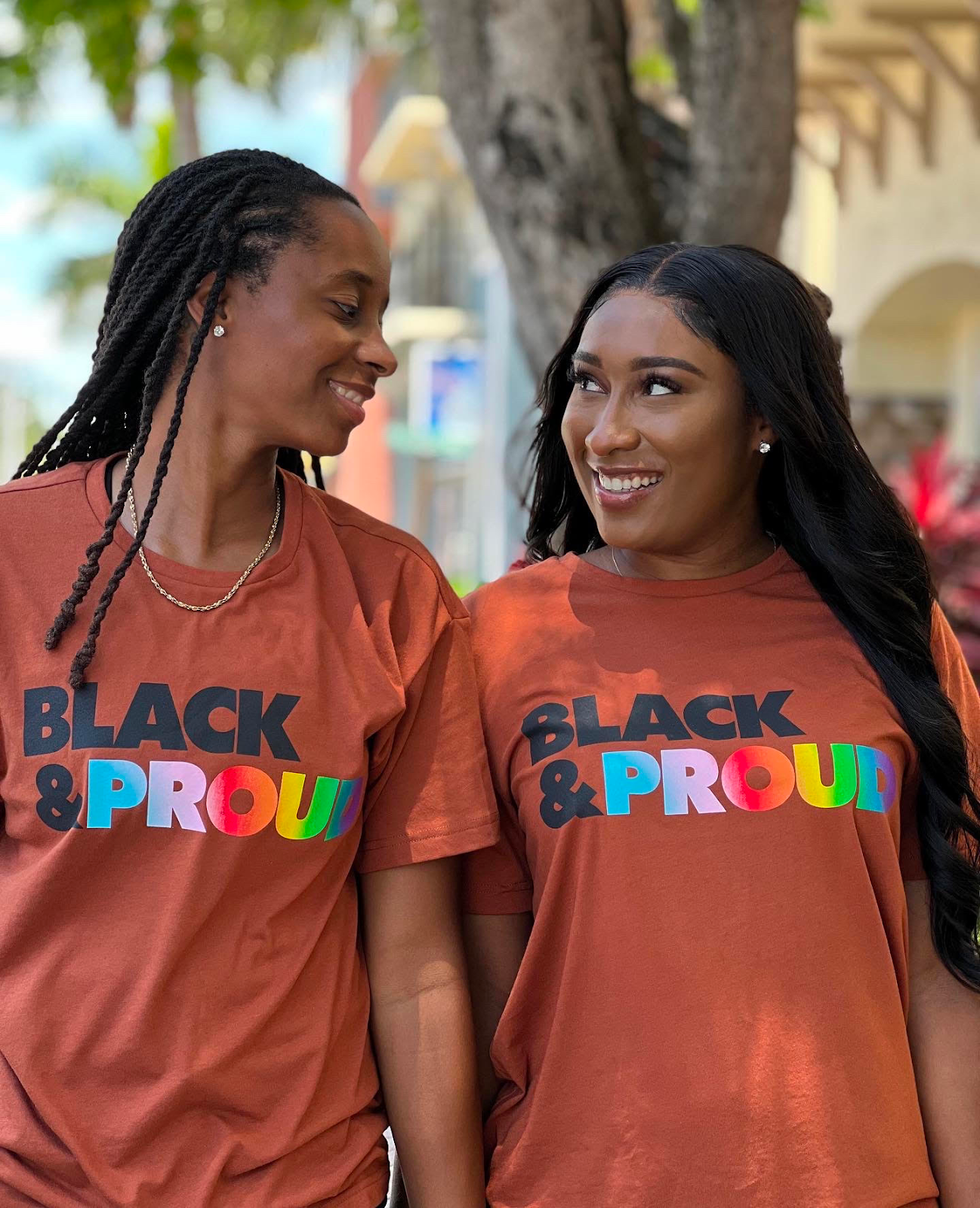
Courtesy of JasandTee
What Pride Month means to JasandTee:
To us, Pride means so much more than a celebration, it's more than rainbows and parades. Pride is something we all have inside us. It's a way of life. It's our journeys, our past, and our future. Pride is who we are or who we ought to be. Most people aren't fully comfortable with who they are. If you spend 11 months not feeling comfortable or aligned within yourself, let the month of June be the one month you get out there and celebrate yourself, your boldness, your queerness, your rights, and your purpose. Pride is the voice for the ones who can't find their own.
What they love most about being Black and queer:
Being Black and queer is our identity and it makes us so proud to know how supple our ancestors were. What we love most about being Black and queer is the fact that we get to be a positive representation of what love looks like. Growing up, Black love wasn’t something you saw advertised. In fact, in most cases, most movies or shows reflected dysfunction within the Black community and Black households. Being able to love out loud is one of the best things that happened to us. Hiding our true selves is a form of dysfunction. Today, we are breaking that cycle by living in our truth. By being unapologetically Black and queer.
How they celebrate Pride Month and make it their own:
Jas and I celebrate Pride by going to some of our favorite stores like Target and Old Navy to shop their Pride collection. We also like to go to our local Pride events with some of our closest friends.
What they would like to see change about the celebration of Pride:
We would like to see more heterosexual people celebrate Pride. You don’t have to be a part of the LGBTQ+ community to celebrate queer individuals. We say this because most people can attest to knowing someone who is queer and no matter their place in your life they should be celebrated. Choosing to stay silent in fear of association isn’t much of a celebration.
Being content creators has allowed us to tap into advocacy. Having a platform has also allowed us to connect with more people than ever before. Hearing all the stories and watching the growth of our followers has inspired us to continue to be a voice in our LGBTQ+ community. Our goal is to be able to reach people all over the world. This entire journey has been eye-opening. We realized how much exclusion and discrimination the LGBTQ+ community face on a daily basis.
"What we love most about being Black and queer is the fact that we get to be a positive representation of what love looks like. Being able to love out loud is one of the best things that happened to us. Hiding our true selves is a form of dysfunction. Today, we are breaking that cycle by living in our truth. By being unapologetically Black and queer."
Community Builder, Radio Host, Social Media Guru, DJ
Pronouns: She, Her
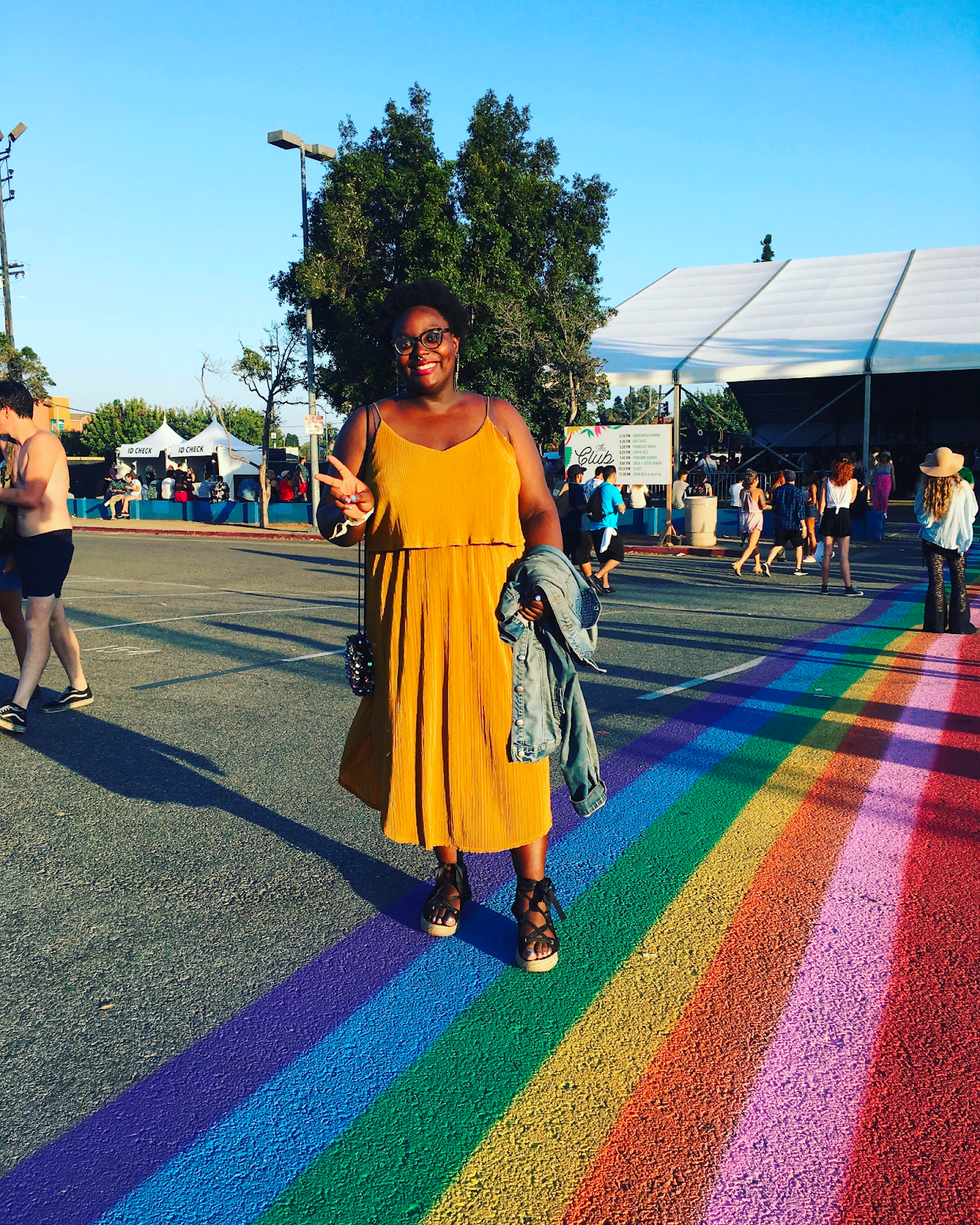
Courtesy of Demi Harvey
What Pride Month means to her:
Pride Month is a celebration of life, love, community, and resistance. It’s an opportunity to live life to the fullest and share in that joy with others.
What she loves most about being Black and queer:
My uniqueness! My experience is one of a kind. It’s a blending of cultures. It is everything.
How she celebrates and makes Pride Month her own:
I love trying new things, visiting new spaces, and meeting new people so I make a point of that every Pride. Expanding my horizons and getting out of my comfort zone.
What she wants to see change about the celebration of Pride:
I want my people to feel safe and free to be themselves. There’s lots of ways in which that is challenged at national Pride celebrations, but I want queer people to know that there is community out there for you beyond national Pride celebrations.
Let’s make things inbox official! Sign up for the xoNecole newsletter for daily love, wellness, career, and exclusive content delivered straight to your inbox.
Featured image courtesy of Kyanna Alexander
Your December 2025 Monthly Horoscopes Are All About Surrender & Alignment
December is about letting go. We end the year with the need for more peace, reflection, and rejuvenation, and that is exactly what December is providing for us. The Sun is in Sagittarius, and anything is possible. This is the month to believe in that and to know that the universe is supporting you. With a Supermoon in Gemini as we begin the month as well, we have an opportunity to gain the closure we have been looking for this year and to wrap up old projects, ideas, and communication breakthroughs.
This is the month to make your peace the priority and let go of trying to control the way the tides are turning. Trust in your new beginning, and give yourself time to prepare for it this month.
A big part of the clarity that is coming through this month is due to Neptune going direct in Pisces on December 10, after being retrograde here since July. With Neptune now direct, we are able to see our inspiration and creativity a little more clearly, providing the perfect energy for dreams and manifestation to be built upon. The smoke is clearing, and it’s up to you to decide what you want to do with this newfound clarity that this transit is bringing. Mercury also moves back into Sagittarius on December 11, which is great for communication and clarity, and the adventures you were trying to see through at the beginning of November come around for you again with greater purpose and support.
On December 15, Mars enters Capricorn until the end of January 2026, and this is the extra push we need to make important changes and to be on the path towards greater abundance, stability, and prosperity. Mars in Capricorn takes care of business, and we have extra energy at our disposal during this time to do so. This transit is an ideal time to focus on your career or financial goals for next year and to start putting some of these plans into motion now. A few days later, we have the New Moon of the month, which will be in Sagittarius on December 19, and this is the perfect New Moon to manifest.
The energy is high, magic is in the air, and it’s all about moving forward with the new beginnings that are inspiring you and bringing you joy to think about right now.
Capricorn Season officially begins on December 21, and this earth sign energy is how we heal, gain closure, and build new foundations in our world. With Venus also moving into a Capricorn a few days later, there is something about peace, prosperity, and security that we are gaining in life and in love as we close out the year, and this is what we need right now. This month is about reflecting on what was, letting go of old hurt, and renewing. December is an ending and a new beginning in one, and there is magic in this space to be created.
Read for your sun and rising sign below to see what December 2025 has in store for you.
 AriesKyra Jay for xoNecole
AriesKyra Jay for xoNecoleARIES
December is a full-circle moment for you, Aries. You are seeing the gifts in your world and have a lot of gratitude for the way things have come about for you as of late. There are culminations in your world that are providing you with more abundance, stability, and community, and you are exactly where you are meant to be this month. With the Sun in a fellow fire sign and in your 9th house of travel for most of the month, December is a good time to get out of your comfort zone, explore the world around you, and get your body moving.
Mars, your ruling planet, also makes a change and moves into Capricorn on December 15, which will fuel your inspiration and power in your career space. You are making a lot of professional progress as we close out the year; however, make sure to be more mindful of your competitive drive right now. The New Moon on December 19 is the perfect opportunity for you to create some new plans and goals when it comes to traveling, education, and where you want to gain some new inspiration in your world. Overall, this is a month of things coming together for you serendipitously.
 TaurusKyra Jay for xoNecole
TaurusKyra Jay for xoNecoleTAURUS
December is about trusting your intuition, Taurus. You have a lot on your mind this month, and it’s best to delegate, communicate, and allow yourself some relief by opening up to someone and not feeling like you have to hold everything in. As we begin the month, we have a Supermoon in Gemini happening in your house of income, and the plans and projects you have been building here come to fruition for you now. This is the time to gain clarity on your financial world and to take a look at what spending habits you want to let go of here as well.
With Venus in your 8th house of shared resources for most of the month, you are doing a cleanse on your commitments, partnerships, and business ventures. You are taking a look at what you want to dedicate yourself to in the future, and what commitments you may need to let go of now in order to be in the space you truly want to be, both financially and within some of your relationship dynamics. Before we end the month, we have a New Moon in this same area of your chart, and it’s time to look at the opportunities that are presenting themselves and to trust your internal guidance system to lead you forward.
 GeminiKyra Jay for xoNecole
GeminiKyra Jay for xoNecoleGEMINI
You are moving forward fearlessly this month, Gemini. December is your month of love, passion, and dignity, and you are owning the light that you shine. We begin the month with the last Supermoon of the year, happening in your sign, and you are stepping up to the plate. You are showing up, owning how much you have grown this year, and allowing yourself to heal while also acknowledging that you have done your best and you deserve to have fun in the midst of the changes you are creating.
Mercury, your ruling planet, is officially out of retrograde, and you can use this energy to the fullest potential now. With Mercury in your 7th house of love, it’s time to speak from the heart and to talk about the things that matter and that are inspiring you right now to your loved ones. You never know what kind of epiphanies you may have when you open up the conversation to others. Before the month ends, you have a New Moon in this same love area of your chart, and this New Moon is all about manifesting romance, commitment, and abundance in your world.
 CancerKyra Jay for xoNecole
CancerKyra Jay for xoNecoleCANCER
December is an opening for more love, more joy, and more freedom in your life, Cancer. You have come to a place where you hold so much gratitude in your heart for where you are today and where your heart is shining, and things come together for you with more ease right now. With the Sun in your 6th house of health, work, and daily routines for most of the month, you are getting your ducks in a row while also putting more energy and effort into taking care of yourself, your priorities, and your well-being. This month surprises you in many ways, and it’s because you are showing up.
Mars and Venus both move into your house of love, relationships, marriage, and abundance this month, and you are making strides in your love life. You have both of these opposing forces on your side and are being recognized for the love you are while also receiving the love you want. This month, overall, is about focusing more on the positives in your world and letting your heart have its joy. Before December comes to an end, there is a New Moon in Sagittarius, and this is the perfect opportunity to create the plans you want to see through next year, especially when it comes to your work life, colleagues, business ventures, and health.
 LeoKyra Jay for xoNecole
LeoKyra Jay for xoNecoleLEO
The scales of karma are balancing, and they are balancing in your favor this month, Leo. December is your month of truth, and of seeing it clearly in your world. The Sun is in your house of romance, pleasure, and happiness for most of the month, and it’s time to relax, be in the present moment, and allow what is meant to be, to be. With a Supermoon in your 11th house of manifestation as December begins, this is a powerful month for seeing your dreams come to fruition, and for feeling like the intentions you have set this year are finally here for you now.
Mars also moves into your 6th house mid-month, and this is the perfect energy to have to move into the new year. You have extra energy at your disposal right now and are feeling fearless with what is possible for you and your daily routine. Before the month ends, we also have a New Moon in a fellow fire sign, Sagittarius, and this is a breakthrough moment for you and your heart. December, overall, wants to show you how loved and supported you are and will be doing so in magical, unexpected, and concrete ways.
 VirgoKyra Jay for xoNecole
VirgoKyra Jay for xoNecoleVIRGO
December is a month of victory, Virgo. You are showing up and experiencing some new successes in your world that move you forward on your path in life. With a Supermoon in your 10th house of career as we begin the month, the effort and intentions you have made this year come into full bloom, and you are being recognized for who you are and the good work you have done. This month is all about showing up and allowing yourself to be seen and loved, knowing that you deserve the support and opportunities you are receiving.
Mars moves into Capricorn on December 15, which brings the passion and excitement into your love life, hobbies, and little pleasures in life that light you up. You want to have fun this month and are going to be walking into the new year with this fearless, happy, and spontaneous energy within you. Before the month ends, Venus also enters Capricorn, and in this same area of your chart, you have a lot to look forward to and believe in right now. Overall, December wants you to be happy and will be doing everything possible to make that happen for you. This is your month to shine, Virgo.
 LibraKyra Jay for xoNecole
LibraKyra Jay for xoNecoleLIBRA
December is a month of opportunity for you, Libra. New doors open, and you are financially making breakthroughs this month because of it. December begins with a Supermoon in your 9th house, and you are getting a clearer view of where you have been making strides in your life and how it has all brought you here to this present moment of freedom. This month is showing you what happens when you are fearless with your purpose and when you believe in yourself and what you are worthy of.
Moving further into December, Mars moves into your 4th house of home and family mid-month, and you are closing out the year in your safe spaces. You are spending more time with your loved ones and taking the time to quiet your mind and listen to what your heart has been telling you. Before the month ends, we have a New Moon in Sagittarius, happening in an area of your life that deals with communication. This is a great time for getting the answers you have been looking for and for feeling more clear-headed and confident about the decisions you are making as you move into the new year.
 ScorpioKyra Jay for xoNecole
ScorpioKyra Jay for xoNecoleSCORPIO
Patience is a virtue this month, Scorpio. December is all about remaining patient and vigilant with what you are creating in your world, and knowing that the universe has your back. It’s time to be reminded of the power of hope, and this month is an opening to greater clarity in your life. There is a lot of energy in your financial zones right now, and this is providing you with new opportunities and new insight; however, the speed at which things come about for you may feel daunting. Keep your head up and eyes focused on what you want and know that you are more than worthy of receiving it.
With Mercury in your 2nd house of income this month, December is a good time to plant new seeds and to think about where you want to be financially a month from now or even a year. This month is asking you to think bigger and to think more long-term so that you can set the appropriate plans into motion now. We also have a New Moon in your house of income before the month ends, and this is when you will see more of your dreams come to fruition in this area of your life, and have more opportunities to build. Overall, December will be teaching you a lot, Scorpio.
 SagittariusKyra Jay for xoNecole
SagittariusKyra Jay for xoNecoleSAGITTARIUS
Sagittarius Season is here, and there is a lot in store for you this month, Sag. December is all about what you are dedicating yourself to. It’s about setting your intentions and putting the work in to back up your dreams, and about getting things in order so that when the new beginnings come, you are ready for them. The Sun and Venus are in your sign for most of this month, and there are a lot of eyes on you right now. You have the potential to create a new beginning for yourself, and it’s time to invest in yourself, your love life, and your dreams.
Mercury moves into Sagittarius on December 11, and this is giving you another opportunity to see through some of the plans that you had initiated in November. Mercury was retrograde in your sign last month, and there may have been some disruptions to your vision and plans for the future, and now this energy is turning around for you. Before the month ends, we also have a New Moon in Sagittarius, and you are walking through new doors fearlessly. You are catching others by surprise by your growth this month, and you are thinking a lot about your purpose, future, and plans for the new year.
 CapricornKyra Jay for xoNecole
CapricornKyra Jay for xoNecoleCAPRICORN
December is all about the vision, Capricorn. You are moving through a lot of changes and transformations this month, yet they are giving you a chance at a new beginning in the process. You are focused more on the future and what goals you want to manifest for yourself right now, and are ready to let go of what hasn’t been working for you. With the Sun in your 12th house of closure for most of December, this is your time for healing, but remember, healing doesn’t have to be isolating or boring; you can thrive while you renew, and you are this month.
Mid-month, the excitement picks up for you, and you are feeling more energized than you have in a while. Mars moves into Capricorn until the end of January 2026, and you are being proactive with your goals, intentions, and passions. You are a force to be reckoned with this month, and you are making things happen for yourself with confidence. Capricorn Season officially begins on December 21 this year, and this is definitely speeding up your healing process. You are breaking free from what was, and with Venus also moving into Capricorn before the month ends, you are leaving this year in high spirits and with love opening a new door for you.
 AquariusKyra Jay for xoNecole
AquariusKyra Jay for xoNecoleAQUARIUS
December is all about community, creativity, and manifestation, Aquarius. This is the month to work together with others to help bring your dreams to life. You are in a space of inspiration, empowerment, and beauty, and are creating more of this energy around you and in your world. Look out for what support comes your way this month and know that you don’t have to do everything alone to succeed. With the Sun in your 11th house of manifestation and friendship, your intentions are coming to fruition, and it’s time to celebrate with the people you love and to own how far you have come this year.
On December 19, we have a New Moon in Sagittarius, lighting up your life in all of the best ways possible. This is your New Moon of freedom, victory, and magic, and you are seeing new beginnings appear that you were once just hoping for. Before the month comes to an end, Venus moves into your 12th house of closure, and after an active and successful month, you are ready to relax, heal, and give your heart some of the attention it has been asking for. You are moving into the new year with the need to release and renew what hasn’t been working in your relationships, and you are finally ready to.
 PiscesKyra Jay for xoNecole
PiscesKyra Jay for xoNecolePISCES
December is a big month for you, Pisces. You are making some huge accomplishments this month, and are feeling like everything you have been through this year has been worth it for these moments that are coming to fruition for you now. The Sun is in your 10th house of career and reputation for most of the month, and this is where a lot of your focus is right now. You are claiming your successes and putting yourself out there in ways that not only serve you, but that inspire others as well.
Neptune officially goes direct on December 10, after being retrograde in your sign since July, and you are finally seeing things a little more clearly. You are feeling renewed inspiration and passion in your life, and your intuition is your strongest asset right now. Before December comes to an end, we also have a New Moon in your 10th house of career, and what happens now not only changes things for you in the present, but it also opens new doors and what is possible for you in the new year as well. Overall, you are on top of your game this month and are owning the joy and empowerment you feel.
Featured image by Kyra Jay for xoNecole
I already know that this one is gonna hurt a few feelings. The reason why I say that is because, if there is one thing that (many) folks are going to take if they are looking to get a good night’s rest, it’s melatonin, chile.
How do I know? Well, aside from the fact that some people in my own world are hooked on it, it’s also been reported that as many as 27 percent of Americans rely on this particular supplement to catch themselves some nightly zzz’s. That’s why, when I peeped that a particular study about melatonin was damn near viral, I decided that I absolutely needed to use my side of cyberspace to get the word out.
You see the title of this piece. Unfortunately, it is not an exaggeration. If you give me a moment, I will try to explain what is going on and how you should move, going forward, if melatonin is something that you have been relying on in order to get a good night’s rest.
What Is Melatonin?
 Giphy
GiphyOkay, so what exactly is melatonin? It’s actually a hormone in your system that your body produces in order to regulate your circadian rhythm/sleep cycle. Since melatonin tends to kick in 1-3 hours before you turn in at night, that is actually why “losing an hour” (of sunlight) during this time of the year (check out “Is The Drama Of The One-Hour Time Change All In Your Head?”) can throw off your sleep patterns a bit.
If your body doesn’t seem to have enough melatonin naturally, you might find yourself taking a melatonin supplement in order to increase your melatonin levels, although it should go on record that melatonin is also used to treat seasonal depression; a form of reflux disease (GERD); migraines and headaches; fibromyalgia, and even certain types of anxiety. Melatonin also has a reputation for helping to regulate menstrual cycles and slow down the aging of skin and hair. Something else to keep in mind? When melatonin is in supplement form, oftentimes, it is synthetic, which means that it is made in a lab.
Okay, so clearly, melatonin is needed and, as a supplement, it has its benefits.
Then there is the other side of the story. One that just recently came out.
Why Is the Supplement Currently a Cause for Alarm?
 Giphy
GiphyGeeze. There really is no telling how many times I have shared one of my all-time favorite quotes in my content here: “The excess of a virtue is a vice.” Aristotle is the author and it is so very true — including when it comes to melatonin usage. Because here’s the deal: If you are relying on a melatonin supplement to get some sleep, it’s important to note that most health experts say that you shouldn’t take it for more than 1-2 months, tops.
One reason is because melatonin shouldn’t be a “solution” to your sleep problems, so if you can’t get rest without it after several weeks, it really is time to see your doctor. Another reason is because melatonin supplements do have some potential side effects including nausea, vomiting, irritability, restlessness and disorientation. And then there is what has recently come out about it: the possibility of heart failure and even death.
Wild, right? Here’s the deal about that. Did you know that, according to the American Medical Association, the FDA doesn’t regulate most supplements? So, in the case of melatonin, specifically, while one brand might contain a certain amount of it, another may have a ton more. And when someone uses melatonin, consistently, for 12 months or more, they put themselves at a whopping 90 percent increase of heart failure over those who don’t take the supplement at all (the same goes for individuals who have two melatonin prescriptions filled within 90 days of each other vs. those who don’t). Something else to keep in mind? People (involved in the study) who took melatonin were 3.5 times more likely to be hospitalized for heart failure than those who don’t use the supplement too.
Since this is relatively new research, experts are trying to get to the root of why all of this is the case; however, one cardiologist did say that sometimes insomnia itself is the result of an underlying health issue; sometimes one that has to do with one’s heart. So, taking melatonin might further mask a health problem that needs to be immediately addressed. Sleep apnea is one that he mentioned.
These are pretty alarming results, no doubt. Now does this mean that you should avoid melatonin like the plague altogether? Eh. It’s more like you shouldn’t be using it for more than a couple of months. You should talk to your doctor if you are “treating” your sleep issues with it. And it’s always best to find more natural approaches to getting things that you need into your body. When it comes to melatonin, specifically, I’ve got a few ideas.
Other Ways to Get More Melatonin into Your System
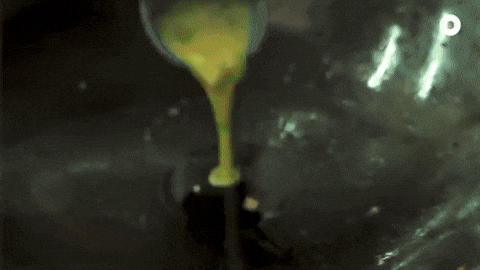 Giphy
GiphyOkay, so what are some other approaches to getting melatonin into your body?
Eat foods that are high in melatonin. Some of them include almonds, fish, milk (which is why a cup of warm milk tends to help), mushrooms, grapes, pineapples and eggs.
Stay in the light as much as possible during the daytime. Something that I like is for it to be rainy, dark and cold (whatever haters — LOL). That’s why I had to adjust the twinkle lights in my living room during the daytime because your natural melatonin levels react to darkness. So, if you’re in the dark all day, that can have your levels all over the place come nightfall.
Make sure that your room is hella dark. Remember what I just said about darkness? Well, even dim light can suppress your melatonin levels. This includes your phone’s screen, okay? So, when it’s time to go to sleep — the darker your room is, the absolute better.
Go easy on the java. It doesn’t really make sense to drink coffee at night since it’s a stimulant; however, even if it’s your jam throughout the day, 1-3 cups should be your limit and definitely earlier in the daytime. The reason? Some studies reveal that caffeine has a way of lowering your natural melatonin levels.
Have more sex. I don’t know too many people who don’t have a GREAT night’s sleep after sex. One reason why is because certain hormones within the body increase during the act; one of them is — yep, you guessed it — melatonin.
5 Other All-Natural Sleep Supplements to Consider
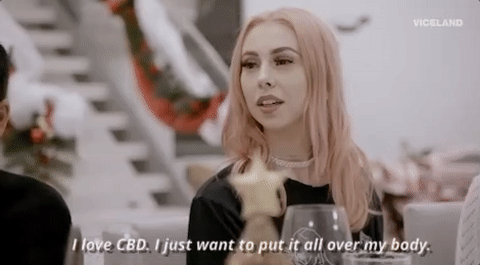 Giphy
GiphySo, now that we’ve unpacked the current issue with melatonin supplements, if you’re wondering if there are any other sleep-based alternatives for you to consider, the answer is “yes” and here are a few of ‘em.
1. Magnesium. Something that I am forever going to be a fan of is the combination of magnesium, calcium and zinc. All work together really well to calm your nerves, so that you can sleep more soundly. When it comes to magnesium, specifically, it helps to regulate your natural melatonin levels while also relaxing your muscles, so that the quality of your sleep improves.
2. Vitamin D. Vitamin D makes the list because there are studies which say that vitamin D deficiencies are linked to certain sleep disorders. This makes sense when you factor in that vitamin D helps to create natural melatonin, it helps to keep your circadian rhythm where it needs to be and it also reduces bodily inflammation (which can also affect sleep patterns).
3. CBD Oil. Although the FDA doesn’t (currently) consider CBD oil to be a supplement, it tends to be marketed as one which is why it also made the list. Since cannabidiol (CBD) is widely used for to bring relief to pain and anxiety, that is why many enjoy using it as a sleep agent as well.
4. Roman and German Chamomile. Did you know that there are different forms of chamomile? Well, the ones that help with sleep (most) are Roman and German. That’s because both contain a flavonoid called apigenin that has a sedative effect to it. When it comes to this suggestion, individuals oftentimes prefer it in tea form.
5. Glycine. If you’ve never heard of glycine before, it’s an amino acid. When it comes to sleeping, a lot of people like it because it’s been proven to help you fall asleep faster, it soothes your muscles and joints and it also helps you to stay asleep once you fall asleep.
____
I know that reading something like this can potentially freak you out. Again, if you’re not downing melatonin like candy and you’re not on it for months and months at a time, you should be fine. If you are on edge, hit up your doctor; they will be happy to explain things further and deeper, I’m sure.
In the meantime, if melatonin is your thing — moderation, please.
After all, the supplement was supposed to be a temporary “fix.” Never a permanent cure.
Which is really what the study is reminding us of.
Let’s make things inbox official! Sign up for the xoNecole newsletter for love, wellness, career, and exclusive content delivered straight to your inbox.
Featured image by Shutterstock



